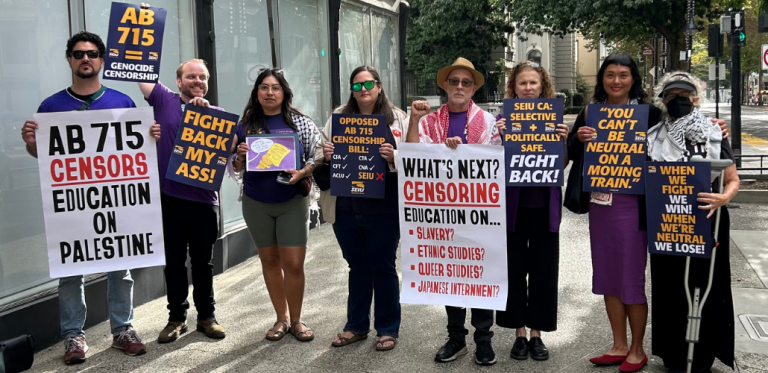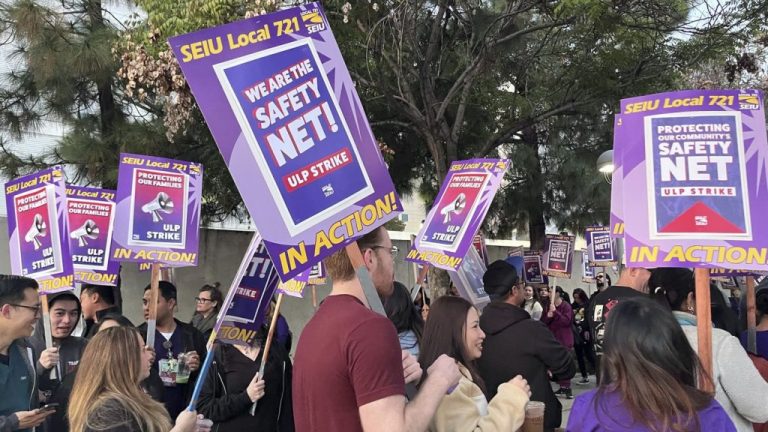SEIU California Sits Out Fight Against Classroom Censorship
SEIU California routinely uses fighting words. Unfortunately, when it was time to “stand up” and “fight back” against legislation that threatens the working conditions of tens of thousands of SEIU education workers, our union’s spirited rhetoric dissipated. SEIU California stood down.
In the final days of the legislative session, AB 715, a dangerous censorship bill with broad implications for California public education, was forced through an abbreviated legislative process and subsequently signed into law by Governor Gavin Newsom.
The bill was backed by Israel lobby groups and California Democrats.















